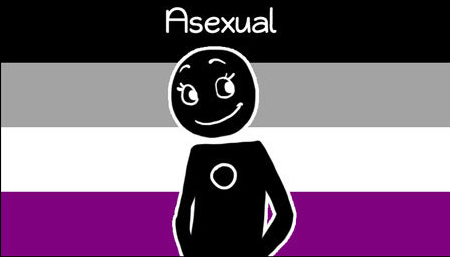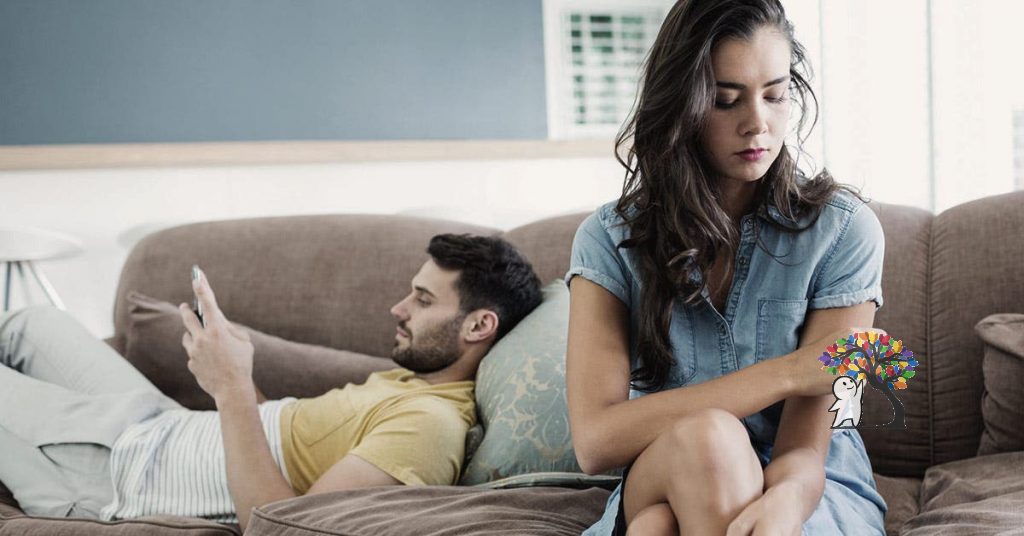10 Things People Get Wrong About Asexual People

This article is for educational purposes only and not designed to suggest that if you relate to anything mentioned within this article that you are Asexual. The points made in this article have been researched and taken from other articles according to assumptions which are made about asexual people. if you suspect that you or somebody you know may be asexual, then always confide in somebody you trust to talk about it.
According to AVEN (Asexuality Visability and Education Network), somebody who identifies as Asexual is somebody who does not experience sexual attraction or an intrinsic desire to have sexual relationships (or the adjective describing a person as such).
There appears to be a lot of stereotyping when it comes to sexuality and what it means to identify as a certain sexual orientation. This may be down to people not fully understanding what it means to be asexual or how other people experience asexuality.
So here are 10 things which people get wrong about asexual people.

1. People assume that they haven’t found the ‘right one’ yet.
When people identify as ‘Asexual’ and openly tell people, they can often be met with phrases such as ‘ Don’t worry. You haven’t found the right one yet’ or ‘Give it time, you will find somebody who is the one for you.’ This is downright denial of a person’s feelings and orientation (Mehra, 2019). Finding or not finding the right person has nothing to do with one’s sexual orientation and may lead them to question why or how they feel the way they do. Trust that people are the experts of their own feelings and identity rather than making assumptions.

2. People who are asexual are not attracted to anybody.
Just because somebody is asexual does not necessarily mean that they are not attracted to people. Being asexual means different things to different people and although some asexual people do not experience sexual attraction towards others, that doesn’t mean that they can’t experience other forms of attraction (Ferguson, 2019). Some other forms of attraction include:
- Romantic attraction: desiring a romantic relationship with someone
- Aesthetic attraction: being attracted to someone based on how they look
- Sensual or physical attraction: wanting to touch, hold, or cuddle someone
- Platonic attraction: wanting to be friends with someone
- Emotional attraction: wanting an emotional connection with someone
3. People who are asexual hate sex and do not have sex.
Not having sexual attraction and hating sex are two different concepts. The asexual community isn’t anti-sex.; but rather they do not feel sexually attracted to anyone. Some of them have sex, some masturbate while some choose to not have sex as they are repulsed or uncomfortable by it (Mehra, 2019). Asexual people may express their intimacies in other ways with each other.

4. Asexual people are celibate or abstinent.
Many people falsely think that asexuality is the same thing as celibacy or abstinence (Ferguson, 2019). So let’s be clear on the definitions.
Abstinence is deciding not to have sex. This is usually temporary or changeable. An example of this may be deciding to abstain from sex until marriage or they may abstain during a difficult period in their life until they feel better.
Celibacy is about deciding to abstain from sex possibly for religious, cultural, or personal reasons. It’s often a lifelong commitment.
Abstinence and celibacy are choices whereas asexuality isn’t. What’s more, asexual people might not actually abstain from sex at all. As mentioned earlier, some asexual people do have sex (Ferguson, 2019).
5. Asexual women do not get periods or do not have a uterus.
Women who identify as asexual are often asked dehumanising questions such as “Do you have a vagina?’ or “Do tour have a uterus?”. Regardless of whether a woman is asexual or not, these questions are extremely personal and are not questions that should be asked under basic courtesy. Asexual people are also humans having organs like other humans (Mehra, 2019).

6. Asexuality is a medical concern.
Many people make the assumption that if a person identifies as asexual, that there is something wrong with them. As biology dictates, everybody is assumed to experience sexual attraction and if they don’t, then something is wrong with them. This is simply not the case! Asexuality isn’t a medical concern and is not something that needs to be fixed (Ferguson, 2019).
7. People who are asexual will never get married.
Asexual people are often told that they will never be able to get married or will stay single for the rest of their lives (Mehra, 2019). Being asexual has nothing to do with their desire to get married; if they have a connection with another person, then there is no reason why they would not or should not be allowed to get married.
8. There is a reason why people are asexual.
Being asexual is just the way somebody is. There is no underlying “cause” of asexuality which is often a common misconception shared with other orientations such as homosexuality and bisexuality. Asexuality isn’t genetic, the result of trauma, or caused by anything else (Ferguson, 2019).
9. Asexual people tend to dress a ‘certain’ way.
Like with other sexual orientations, there are stereotypes which exist which suggest that asexual people dress in a certain way. Statements such as “prudish”, “ugly according to beauty standards” or “shy nerds”, being asexual has nothing to do with your attire, the jokes you crack or how you behave (Mehra, 2019).

10. Asexual people are on a spectrum.
Many people view sexuality as a spectrum. Asexuality can be a spectrum too, with some people experiencing no sexual attraction, others experiencing a little sexual attraction, and others experiencing a lot of sexual attraction (Ferguson, 2019). On the other hand, Greysexual people rarely experience sexual attraction, or they experience it with a very low intensity. As the Asexual Visibility & Education Network (AVEN) explains, greysexuality is often seen as a midpoint between sexuality and asexuality.
I hope you have found this article interesting and if you have comments about the content, then please let a comment in the box below. It is important they we keep educating ourselves about sexuality so that we can reduce the number of assumptions that we make about others.
J 🙂
References
Ferguson, S. (2019, September 18). What Does It Mean to Be Asexual? Healthline. https://www.healthline.com/health/what-is-asexual#no-sexual-attraction
General FAQ | The Asexual Visibility and Education Network | asexuality.org. (n.d.). Www.Asexuality.org. Retrieved December 24, 2020, from https://www.asexuality.org/?q=general.html
Mehra, M. (2019, October 22). 10 Things Asexual People Are Tired Of Hearing. Feminism In India. https://feminisminindia.com/2019/10/23/10-things-asexual-people-tired-hearing/



Responses